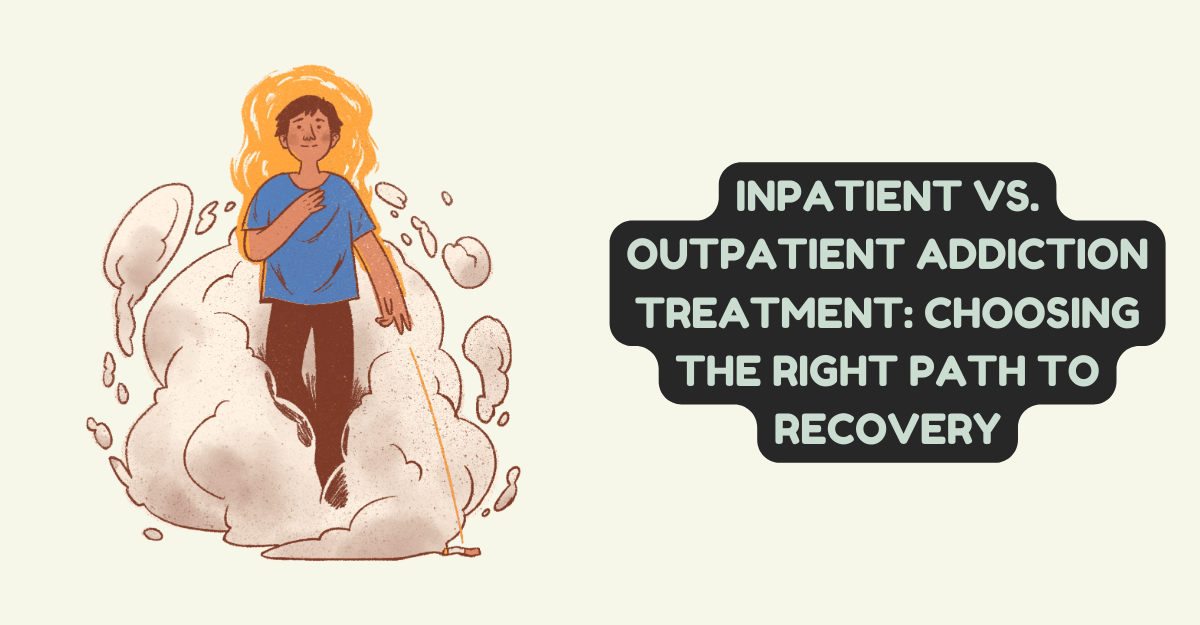
Inpatient vs. Outpatient Addiction Treatment: Choosing the Right Path to Recovery
Addiction is a widespread and intricate problem that impacts millions of people globally. The first step toward recovery is admitting that you need treatment, but choosing between inpatient and outpatient addiction treatment can be difficult. Each strategy addresses unique demands and situations while providing unique advantages and considerations. Comprehending the distinctions between inpatient and outpatient therapy is essential for those looking for the most efficient route to healing.
Immersive Support and Structure
During their program, patients receiving inpatient addiction treatment live in a highly structured setting. This intense method provides therapeutic interventions, monitoring, and support around the clock. The length of an inpatient treatment might vary from a few days to many months, contingent upon the specific requirements and extent of the addiction. An environment that is focused and encouraging for recovery is fostered by the intensive nature of inpatient treatment.
A wide range of therapies, such as detoxification, individual and group therapy, medical attention, and holistic treatments, are available to patients undergoing inpatient addiction treatment. This comprehensive approach tackles the psychological and emotional underpinnings that contribute to substance usage in addition to the physical aspects of addiction. Individuals receiving inpatient treatment gain access to peer support and responsibility through immersion in a therapeutic community, which can boost their motivation and dedication to their recovery.
Flexibility and Integration
Outpatient addiction treatment provides more flexibility, allowing people to stay at home while attending therapy sessions and participating in treatment programs. For those with less severe addictions, robust social networks, and commitments to their families, jobs, or educational institutions, this is the best choice. Some outpatient programs require daily sessions, while others require weekly or bi-weekly consultations. The intensity and duration of outpatient programs vary.
In contrast to inpatient care, outpatient programs lack a controlled residential setting and round-the-clock supervision. However, they provide a smoother transition from therapy to everyday life, allowing people to use their newly learned coping mechanisms in practical ways. Personalized instructional programs, medication management, group counseling, and individual therapy are some examples of outpatient treatment options.
Choosing the Right Path to Recovery
It’s critical to evaluate each person’s needs, interests, and circumstances while deciding between inpatient and outpatient addiction therapy. Those with co-occurring mental health conditions, severe addiction, or insecure living situations might consult with skilled inpatient addiction treatment centers for a quick recovery. The regimented format of inpatient programs offers a secure and encouraging setting for intense therapy, detoxification, and activities aimed at promoting recovery.
However, those with less severe addiction, robust social support networks, and duties that make residential treatment impractical can benefit more from outpatient treatment. The freedom to attend therapy sessions while upholding obligations to family, job, or education is provided by outpatient programs. It’s crucial to remember that outpatient treatment might not offer the same degree of oversight and assistance as inpatient care, which makes it less appropriate for people who have serious difficulties or who run the risk of relapsing.
Factors to Consider
When deciding between inpatient and outpatient addiction treatment, there are a number of considerations to make. These include the intensity of the addiction, the existence of co-occurring disorders, the degree of social support, the availability of funds, and the individual’s preferences. Counselors, therapists, or doctors are examples of addiction specialists who should be consulted in order to evaluate each person’s needs and choose the best course of action.
People should also consider the possible advantages and drawbacks of every treatment strategy. Although it can necessitate a brief absence from home and loved ones, inpatient therapy provides intense support and an organized setting conducive to recovery. Although it can necessitate more self-discipline and accountability, outpatient treatment offers flexibility and incorporation into everyday life.
Conclusion
People looking to recover from substance misuse might benefit greatly from both inpatient and outpatient addiction therapy. Although inpatient care provides comprehensive support and regimen, outpatient care allows greater flexibility and ease of transition into everyday living. Individual requirements, interests, and circumstances all play a role in selecting the best recovery approach. People can make educated decisions to start their road toward long-term recovery and well-being by carefully weighing the reasons stated and speaking with addiction professionals.






